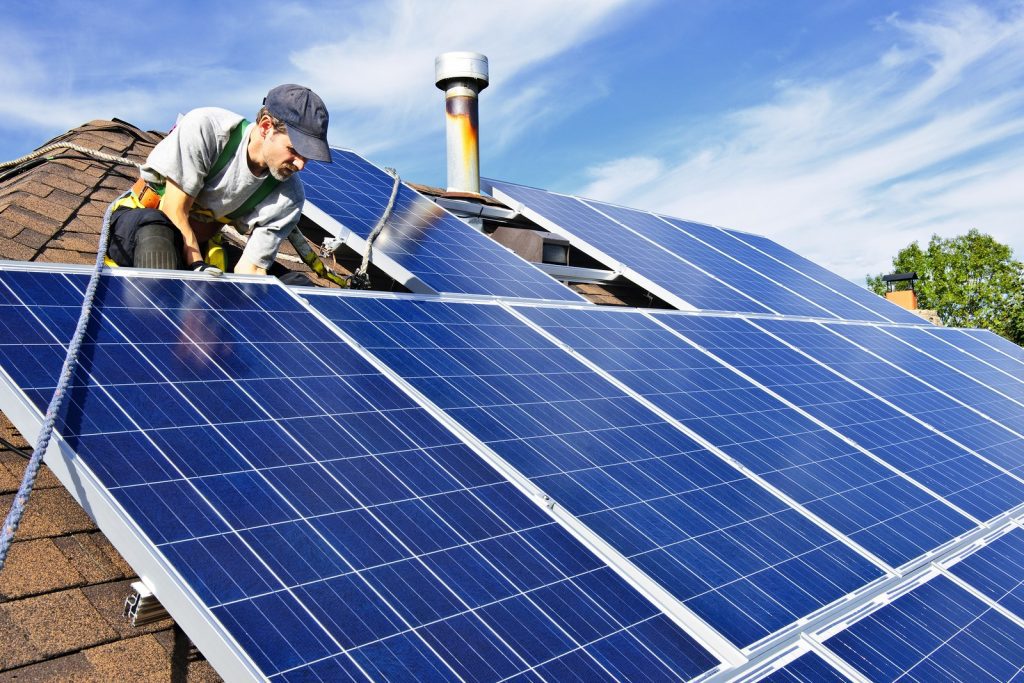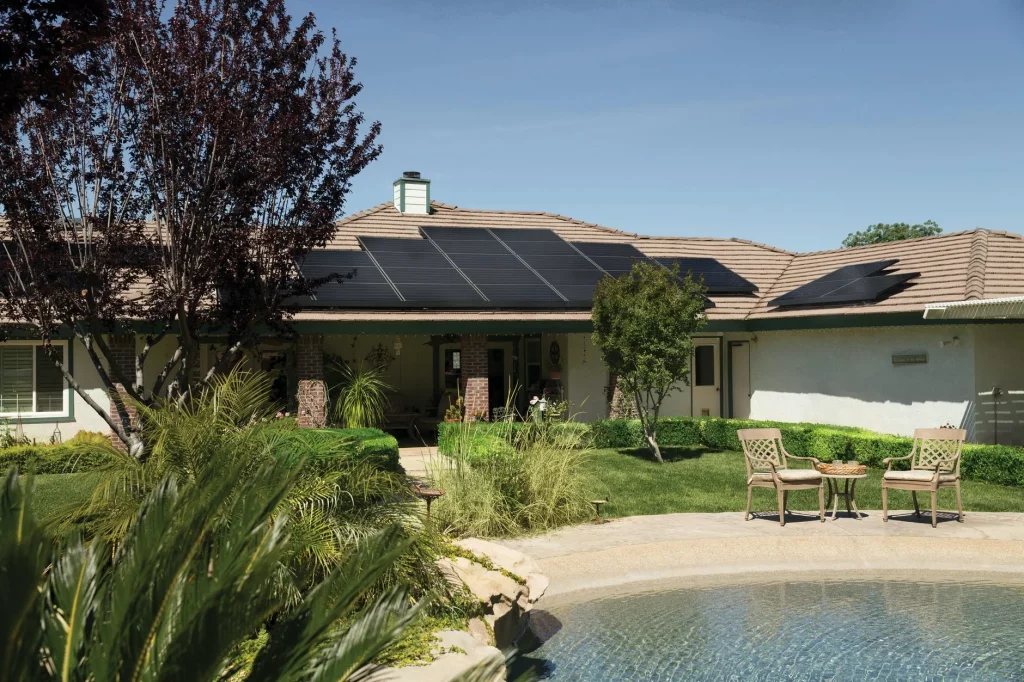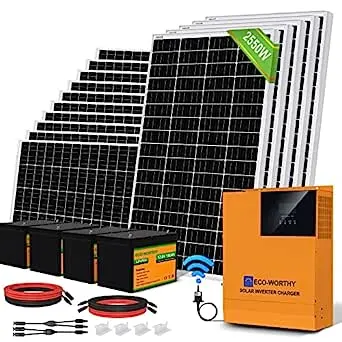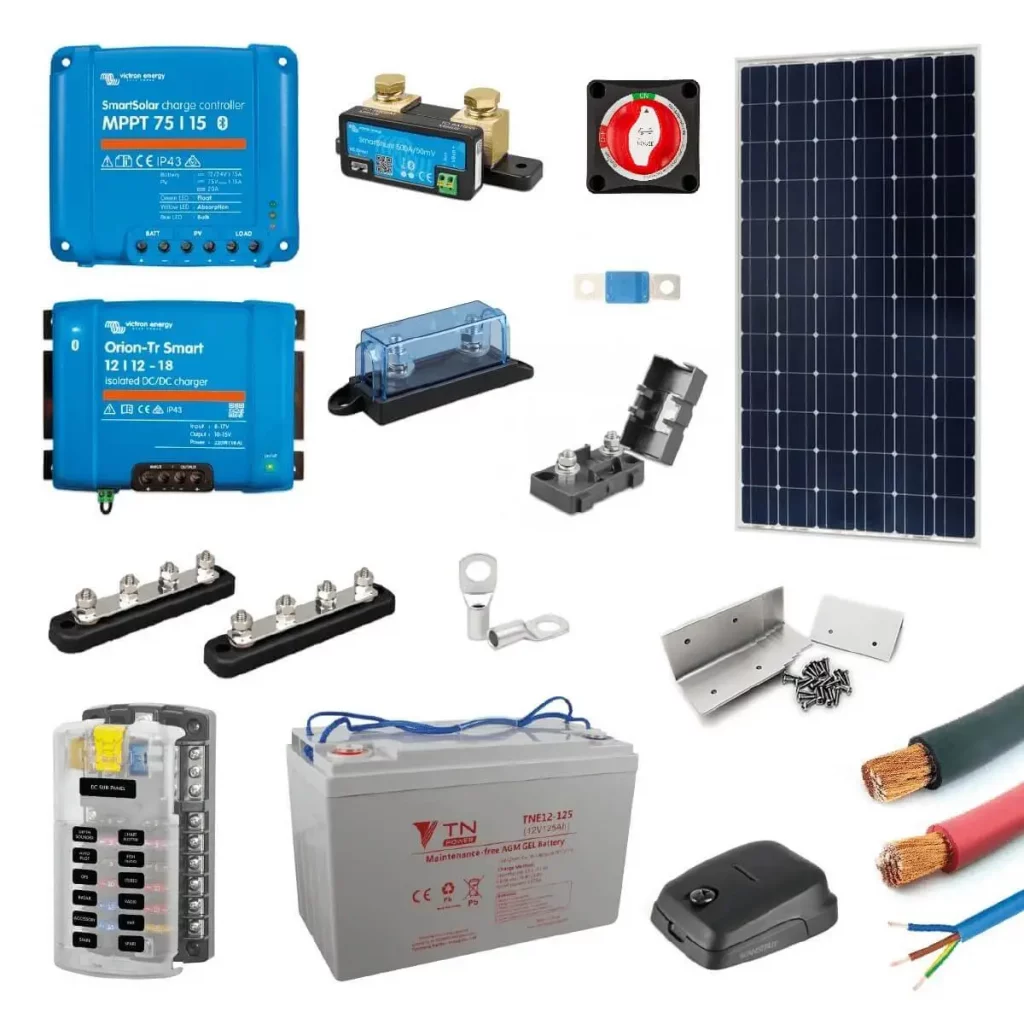What are DIY solar panels?
DIY solar panels can mean many things to different people. Are you looking to install Solar PV on our own house? Is this just for an outbuilding or shed? Or have you got the ‘life on the road/water’ bug and w
ant DIY solar panels for a camper van, caravan or boat?
Here we cover the different options and if you should really consider leaving it to the professionals.
DIY solar panels for your home in the UK
If you’re looking to reduce your carbon footprint and save on energy bills, installing solar panels in your home is a great option.
While many people choose to hire a professional to install solar panels, it is also possible to go down the DIY solar panels route and buy and install them yourself in the UK.
In this article, we will take a look at the steps involved in buying and installing solar panels yourself.
Step 1: Determine your energy needs
The first step in buying is to determine your energy needs.
This will help you determine how many solar panels you need to generate enough electricity to power your home.
You can do this by looking at your past energy bills and calculating your average energy usage.
Step 2: Choose a solar panel supplier
Once you have determined your energy needs, it’s time to choose a solar panel supplier.
There are many suppliers to choose from in the UK, so it’s important to do your research and choose a reputable company.
Look for a supplier that offers high-quality solar panels and provides good customer service.
Step 3: Purchase your solar panels
Once you have chosen a supplier, it’s time to purchase your solar panels.
Make sure you buy enough panels to generate the amount of electricity you need.
Don’t forget to buy essential accessories like a mounting system and an inverter. The inverter transforms the solar panels’ DC power into usable AC power for your home.
Step 4: Install your solar panels
Installing solar panels yourself can be a bit challenging, but it is possible. It’s important to follow the instructions provided by the manufacturer carefully.
Here are the basic steps involved in installing solar panels:
- Install the mounting system: This is the frame that holds the solar panels in place. You will need to attach the mounting system to your roof or other structure.
- Connect the panels: Once the mounting system is in place, you can connect the solar panels together using the provided connectors.
- Install the inverter: The inverter should be installed close to your home’s main electrical panel. It will need to be wired into your electrical system.
- Connect to the grid: Connect your solar panels to the inverter and then link the inverter to the grid, a task usually carried out by a licensed electrician – a highly recommended step.
Pro’s and Con’s for DIY solar on your home
Installing solar in the UK has its advantages and disadvantages when compared to hiring a professional company to do it.
Here are some of the pros and cons to consider:
Pros of DIY Solar:
- Cost: One of the main advantages of DIY Solar is cost savings. Hiring a professional installation company can be expensive, and doing it yourself can save you thousands of pounds.
- Learning experience: It can be a great learning experience. It can give you a better understanding of how solar panels work and how to maintain them.
- Control: You have complete control over the entire process. Select the specific solar panels you desire and oversee the installation to ensure it meets your satisfaction.
Cons of installing solar panels yourself:
- Safety concerns: Installing solar panels can be dangerous, especially if you don’t have experience working at heights. You could fall or injure yourself while working on your roof.
- Lack of warranty: If you install solar panels yourself, you may not receive the same warranty or guarantees that you would get from a professional installation company. This means that you may have to pay for any repairs or replacements out of pocket.
- Time-consuming: Solar can be time consuming, especially if you don’t have experience doing it. This could mean that you spend several weekends or even months completing the installation.
- Building regulations: In the UK, you must adhere to strict building regulations when installing solar panels. If you’re not familiar with these regulations, you may inadvertently violate them, which could result in costly fines or legal issues.

While installing solar panels yourself in the UK can save you money and provide a valuable learning experience, it also has its risks and challenges.
We highly recommend getting a professional to install solar for you, to help you do that we’ve arrange a free service whereby you can get no obligation quotes from local solar companies near you.
Or visit our Solar PV page.
DIY solar panels for a caravan, boat or van
Solar panels are a great way to generate electricity for boats and vans, especially for those who enjoy off-grid living or travelling.
Explore the advantages of employing solar panels for boats and vans, and delve into the installation process. Click here for a full article on DIY solar for Vans.
Benefits of solar panels for boats and vans:
- Off-grid living: Solar panels allow you to generate electricity even when you are not connected to the grid, making them ideal for boats and vans.
- Cost-effective: Solar panels can help reduce your energy costs by generating free electricity from the sun. This can be especially useful for those who live or travel in areas with high electricity prices.
- Environmentally friendly: Solar panels generate clean energy, which means they have a minimal impact on the environment. This is especially important for those who are passionate about reducing their carbon footprint.

Installing solar panels for boats and vans:
- Determine your energy needs: The first step for boats and vans is to determine your energy needs. This will help you determine how many solar panels you need to generate enough electricity to power your appliances and devices.
- Choose your solar panels: There are many types of solar panels to choose from, including flexible, rigid, and portable options. Many opt for flexible solar panels in boats and vans due to their ability to mount on curved surfaces and their lightweight design.
- Choose your charge controller: A charge controller is necessary to regulate the amount of energy coming from the solar panels to the battery bank. Make sure to choose a charge controller that is compatible with your solar panels and battery bank.
- Choose your battery bank: A battery bank is essential for storing the energy generated by the solar panels. Make sure to choose a battery bank that is the right size for your energy needs and compatible with your charge controller. The most popular option is a LiFePO4 battery.
- Install your solar panels: The installation process will depend on the type of solar panels you choose. Flexible solar panels can be mounted directly onto the roof of your boat or van using an adhesive. Rigid solar panels may require a mounting bracket to be attached to the roof first.
- Connect your solar panels to your charge controller and battery bank: Follow the manufacturer’s instructions to connect your solar panels to your charge controller and battery bank.
Where to buy solar panels
You can easily undertake a DIY installation when adding solar to your van, boat, caravan, or even outbuilding.
Most DIY solar kits come with easy to follow instructions and are a case of plug and play, all you need are the Solar panels, control panel, wiring and a battery all of which can be bought online.
Some of us here at The home improvement Hub have first hand experience on our vans and canal boats, we have also extensively searched Amazon to find the best kits available at reasonable prices.
Check out some of the top deals here.
To work out what size panels and battery, we’ve sourced this great article to help you work out the DIY solar panels you will need. How to calculate solar panel requirements.
If you want to take the next step and get quotes from local installers click the below button and request your free no obligation quotes!
The Benefits of Using a Professional for your solar installation
Installing solar panels on your home can significantly lower your electricity bills while also reducing your carbon footprint.
But is trying to install solar yourself a wise DIY project or best left to the professionals?
While the idea of solar DIY can seem attractive, there are many benefits to having solar panels installed correctly by qualified installers.
Expert Planning and Efficient Installation
The positioning and placement of solar panels on your roof is crucial for collecting maximum sunlight.
Professionals use specialised tools and software to survey your home and strategically design a system for optimum efficiency.
Attempting the technical specifications and calculations yourself without solar training risks an inefficient system.
Professionals also have extensive experience fitting panels on a wide range of roof types from tiles to slates.
They know the quickest and most secure installation techniques to get your system up faster.
DIY mistakes like shoddy panel connections, damaged roofing or poor alignments mean the system won’t function as intended.
Compliance With Regulations
Solar installers are familiar with all the current regulations surrounding permits, building codes, utility requirements and safety standards.
If you DIY and overlook any of these rules, you risk compliance issues, fines, needing to re-do work or even voiding insurances due to unpermitted works.
Improper electrical connections can also pose safety hazards.
Access to Solar Incentives and Rebates
Solar rebates such as the Smart Export Guarantee require the system be installed by a certified professional to qualify.
DIY solar means missing out on thousands in guaranteed extra income over the system lifetime.
Professional certifications also unlock access to more competitive solar loans.
System Performance Guarantees
Leading installers provide guarantees ensuring your system will perform as expected, often producing a minimum amount of solar energy.
DIY systems won’t carry any such assurances. You take on all the risks of underperformance.
Workmanship and system defects will require you to cover repair costs rather than the installer.
Ongoing Maintenance and Support
From cleaning panels to dealing with inverter issues, solar systems require regular maintenance.
Installers include maintenance services so you get continued support long after installation.
You’ll handle all troubleshooting solo with DIY solar without any technical guidance.
For the significant investment in a solar system that you expect to rely on for decades, avoiding DIY risks and using qualified professionals who design, install, and back the system is strongly advised.
Paying more upfront for an expert job delivers superior ROI.


